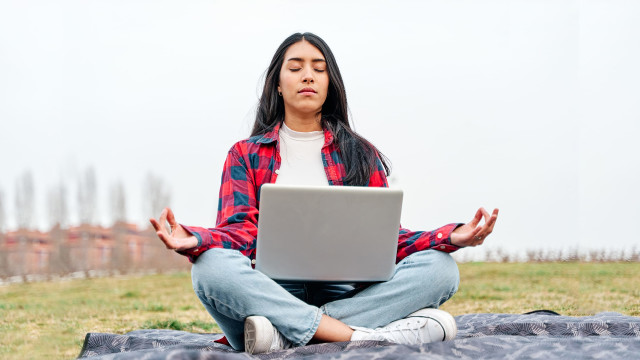Be More Playful With Meditation

While I’ve always been interested in the inner workings of the mind, I first became introduced to meditation in Thailand. The practical and straightforward instructions of insight meditation, or Vipassana, profoundly impacted me; I never knew I could "know" what I was thinking.
Before meditation, I thought but wasn't mindful of having thoughts. I discovered that awareness is a refuge, a resting place that gave a radically new perspective. I understood how I was not the center of the universe or my thoughts. I realized that all of life is interrelated and that we are nature.
Meditation as a Causative Force in My Career
For more than a decade, I have taught meditation to young people in schools, homeless shelters, and detention centers. My focus is insight dialogue, this relational meditative practice brings together meditative awareness, the wisdom of Buddha's teachings, and our natural human capacity for relatedness.
I like to "play" meditation instead of "working it," just like musicians play their music. A playful attitude keeps us going given the repetitive nature of meditation, which makes sense, because this is what the word practice means.
Ironically, my favorite topic in my classes is being aware of change. The more we are at ease and comfortable with this eternal natural law, the less we suffer. The Buddha's last words were, "All conditioned things are impermanent; keep practicing diligently." And this diligence is cultivated by joy in practice.
Meditation as a Causative Force in My Life
Throughout the years, my students have given me so much honest feedback, which I believe reflects the youth's mindset; they gave me invaluable lessons on the importance of embodying the practice.
Teaching meditation is just as much practice as is meditating by yourself. All our experience is practice. Zen monk Thich Nhat Hanh puts it this way: "There is no enlightenment outside of daily life."
What Meditation Means to Me
My daily meditation mixes mindful movement and sitting practice. I also have a daily outdoor mindful swimming routine — even in the winter. Being in the water makes it easy to stay present, connect with the body and the elements of earth, wind, water, and fire.
I also meditate weekly with many groups because I think I might have stopped meditating without communal support. The communal practice has inspired me to continue learning more about racism, oppression, and inequity and no longer hide in my privilege as a white, married, cisgender, able-bodied, heterosexual male with a 6-year-old son.
Tips for Building Your Meditation Practice
The Buddha started his teaching with mindfulness of the body. This is a great place to start. When you sit, know you're sitting. Body awareness has great benefits because we often forget to listen to the body. The body doesn't lie, and it is always in the present moment.
You could start by finding out what bodily sensation you can easily feel and be aware of. For some, it is sensations of touch or feeling the breath; for others, it is mindfulness of hearing. Just three minutes of body awareness can make a huge difference.
Try this class, Elevator Meditation for Beginners, by certified mindfulness teacher Kate Savage, to experience how a visualization practice may help you build a meditation routine.
Header photo: Artur Debat/Getty Images









